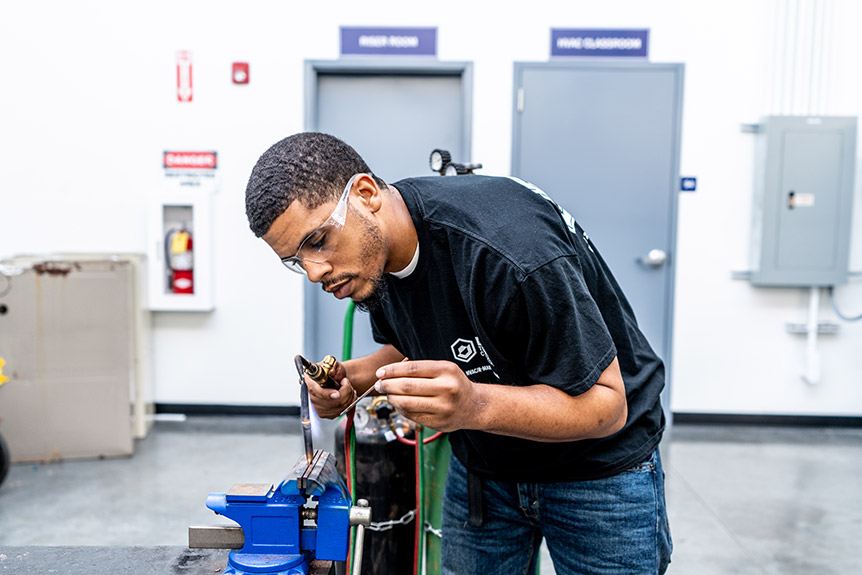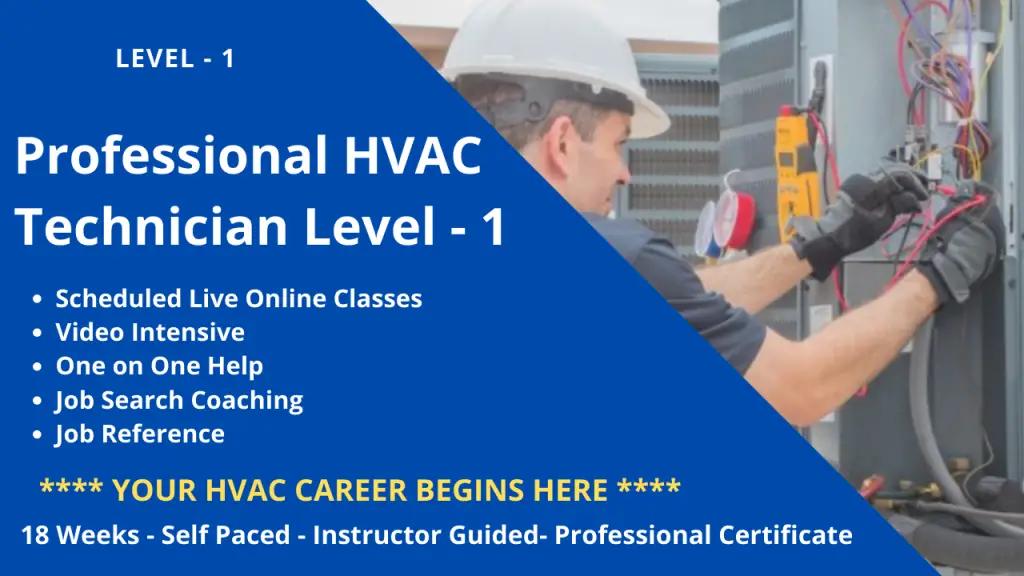Are you interested in becoming an HVAC technician? HVAC stands for Heating, Ventilation, and Air Conditioning. These systems are essential in homes, offices, and other buildings. HVAC training is crucial for learning how to maintain these systems.
What is HVAC Training?
HVAC training teaches you how to install, maintain, and repair HVAC systems. You will learn about different types of heating and cooling systems. Training also covers ventilation and air quality control.
Why is HVAC Training Important?
Proper HVAC training ensures the safety and efficiency of HVAC systems. Trained technicians can identify and fix issues quickly. This helps in maintaining comfortable indoor environments.
Benefits Of Hvac Training
- Improved job prospects
- Higher earning potential
- Better understanding of HVAC systems
- Increased safety
How to Become a Certified HVAC Technician?
Becoming a certified HVAC technician involves several steps. Here is a simple guide to help you:
Step 1: Complete High School Education
A high school diploma or GED is required. Focus on subjects like mathematics, physics, and vocational courses.
Step 2: Enroll In An Hvac Training Program
Choose a reputable HVAC training program. These programs are available at community colleges and technical schools. Ensure the program is accredited.
Step 3: Complete An Apprenticeship
Apprenticeships provide hands-on experience. You will work under the supervision of experienced technicians. Apprenticeships usually last 3 to 5 years.
Step 4: Obtain Certification
After completing your training, you need to get certified. Several organizations offer HVAC certifications. The most common certifications are:
- EPA Section 608 Certification
- NATE Certification
- HVAC Excellence Certification
Types of HVAC Training Programs
There are different types of HVAC training programs. These programs vary in duration and content. Here are the main types:
Certificate Programs
Certificate programs are short-term courses. They usually last between 6 months to 1 year. These programs focus on the basics of HVAC systems.
Diploma Programs
Diploma programs are more comprehensive. They typically take 1 to 2 years to complete. These programs cover advanced topics in HVAC systems.
Associate Degree Programs
Associate degree programs provide in-depth training. They take about 2 years to complete. These programs include general education courses and specialized HVAC training.
Key Topics Covered in HVAC Training
HVAC training programs cover various topics. Here are some key topics you will learn:
| Topic | Description |
|---|---|
| Thermodynamics | Understanding heat transfer and energy conversion. |
| Refrigeration | Learning about refrigeration cycles and components. |
| Electrical Systems | Studying electrical components and wiring in HVAC systems. |
| Air Quality | Improving indoor air quality and ventilation. |
| System Design | Designing efficient HVAC systems for different buildings. |
Hands-On Training
Hands-on training is a crucial part of HVAC education. It helps you apply theoretical knowledge to real-world scenarios. You will work with actual HVAC equipment and tools. This experience is invaluable in your career.

Credit: www.midwesttech.edu

Credit: nttinc.com
Online HVAC Training Programs
Online HVAC training programs are becoming popular. They offer flexibility and convenience. You can study at your own pace. However, hands-on training is still essential. Look for programs that include practical sessions.
Cost of HVAC Training
The cost of HVAC training varies. Certificate programs are usually the least expensive. Associate degree programs are more costly. Financial aid and scholarships are available. Check with your chosen institution for options.
Job Opportunities for HVAC Technicians
HVAC technicians are in high demand. You can work in residential, commercial, or industrial settings. Job roles include:
- HVAC Installer
- HVAC Service Technician
- HVAC Maintenance Technician
- HVAC Engineer
Advanced certifications can lead to higher positions. These include supervisory and managerial roles.
Salary Expectations
HVAC technicians earn competitive salaries. The average annual salary is around $50,000. Experience and certifications can increase your earning potential. Technicians in specialized fields often earn more.
Continuing Education
Continuing education is important for HVAC technicians. Technology and regulations are always changing. Staying updated is crucial. Many organizations offer continuing education courses. These courses help you stay current in your field.
Frequently Asked Questions
What Is Hvac Training?
HVAC training teaches skills to install, repair, and maintain heating, ventilation, and air conditioning systems.
How Long Is Hvac Training?
HVAC training typically lasts 6 months to 2 years, depending on the program and certification requirements.
Is Hvac Training Hard?
HVAC training can be challenging but manageable with dedication. It involves both theoretical knowledge and hands-on skills.
What Do You Learn In Hvac Training?
You learn system installation, troubleshooting, maintenance, and safety protocols in HVAC training programs.
Conclusion
HVAC training is essential for a successful career in this field. It provides the knowledge and skills needed to excel. From high school to certification, each step is important. Choose a reputable training program and gain hands-on experience. The job opportunities and salary prospects are promising. Stay updated with continuing education. Start your journey to becoming a certified HVAC technician today!

